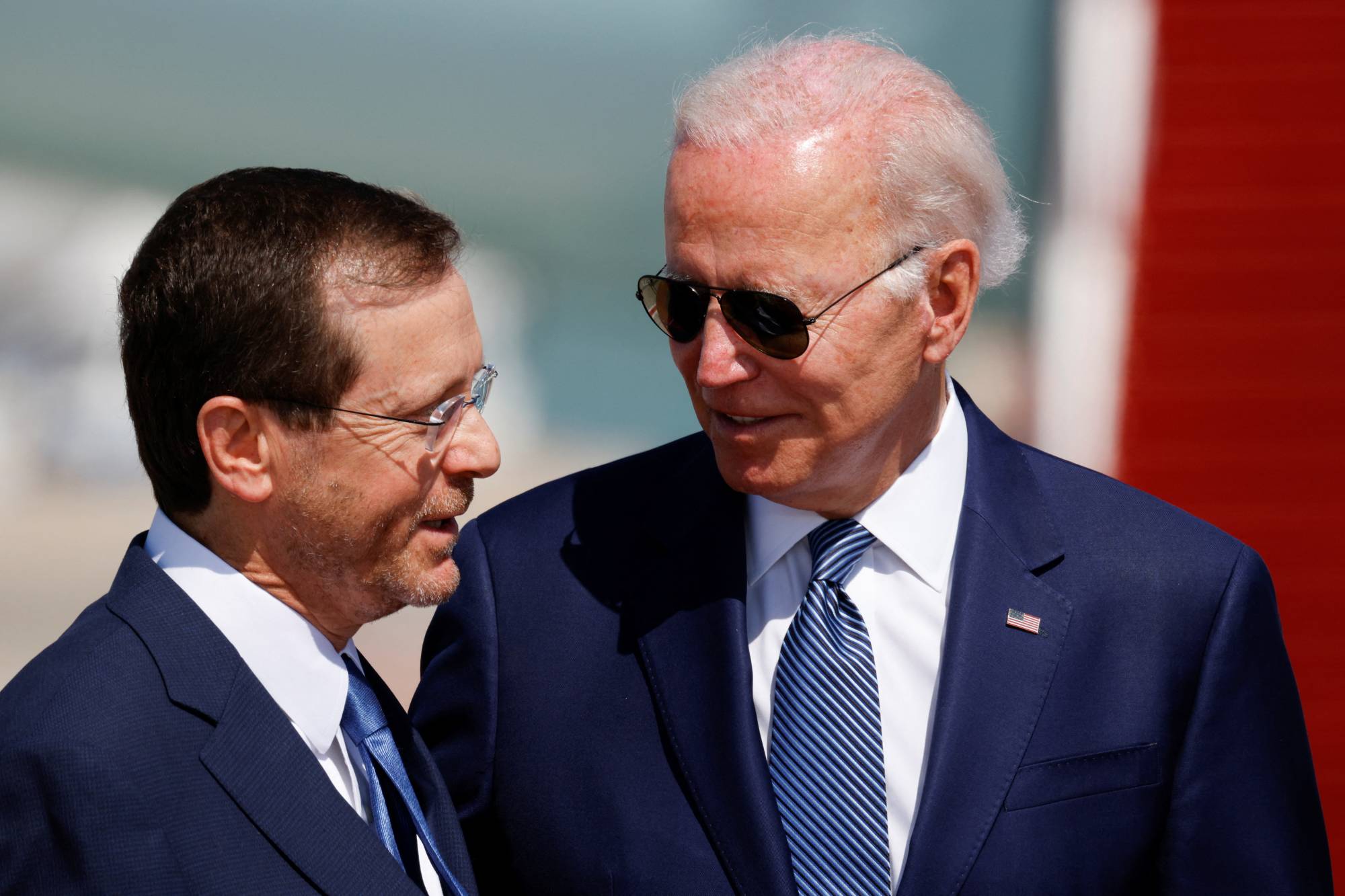If U.S. President Joe Biden’s arrival in Israel on Wednesday for his first trip here since taking office could be summarized in just two words, they might be: Donald who?
A year and a half after Donald Trump left the White House, Israeli leaders welcomed his successor with a rapturous embrace, as if to prove that their love affair with the former president would not stand in the way of a close relationship with the new president. As for Biden, he seemed just as determined to prove that he took a back seat to no one in supporting Israel.
At a red-carpet airport ceremony flush with fawning on both sides, President Isaac Herzog of Israel called his U.S. counterpart "our brother Joseph,” declaring that "you are truly amongst family.” The country’s interim prime minister, Yair Lapid, called Biden "a great Zionist and one of the best friends Israel has ever known.” For his part, Biden asserted that "our relationship is deeper in my view than it’s ever been” and told an Israeli interviewer that returning to the Holy Land was "like going home.”
















With your current subscription plan you can comment on stories. However, before writing your first comment, please create a display name in the Profile section of your subscriber account page.